Unveiling the Intriguing Realms of Cabinet and Bathroom Factory Outlets
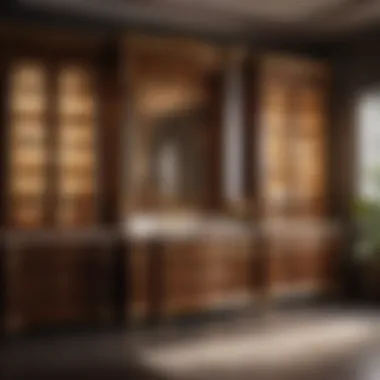
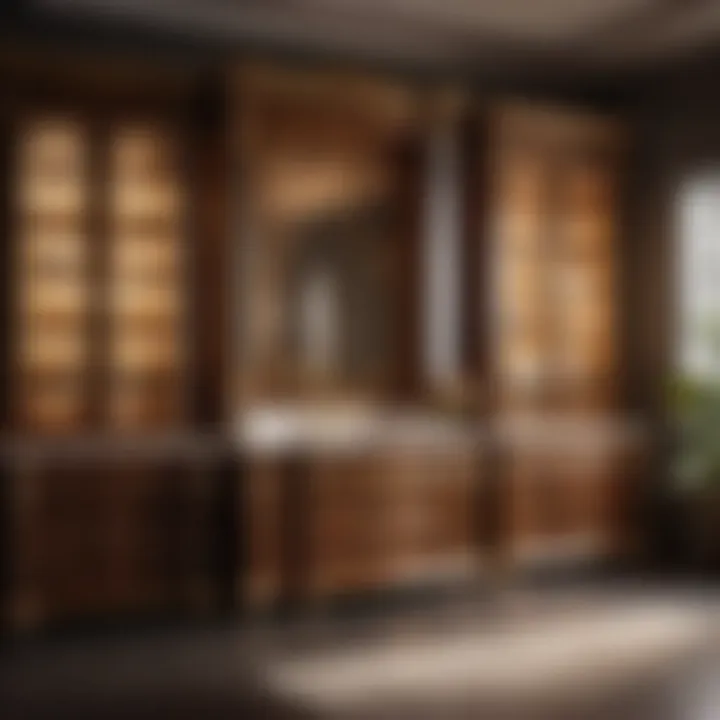
Materials:
- MDF or plywood panels: 12 pieces of 24"x48" panels for cabinets, 4 pieces of 36"x60" for bathroom
- Cabinet hardware: Hinges, handles, knobs
- Countertop material: Quartz or granite
- Plumbing fixtures: Sink, faucet, showerhead
- Paint or stain
- Tools: Table saw, drill, screwdriver, measuring tape, level
DIY Steps:
- Planning: Measure the space for cabinets and bathroom, consider layout and functionality needs.
- Design: Create detailed sketches or use design software for cabinet and bathroom layout.
- Material Selection: Choose high-quality materials for durability and aesthetics.
- Cutting: Use a table saw to cut panels to correct dimensions for cabinets and bathroom components.
- Assembly: Assemble cabinet frames, install hardware, attach doors, and drawers.
- Installation: Place cabinets in designated spots, secure to walls, and level them.
- Countertop Installation: Cut and secure countertop material, install plumbing fixtures.
- Finishing: Paint or stain cabinets, apply necessary finishes for protection.
Technical Aspects:
- Timing: Set aside 2-3 days for cabinet construction, 1-2 days for bathroom assembly.
- Tools: Ensure precision with a table saw, accuracy with measuring tools, and stability with levels.
- Techniques: Use proper joinery for cabinet stability, waterproofing techniques for bathrooms.
DIY Project Process:
- Cabinet Installation: Begin with base cabinets, then install upper cabinets, ensuring alignment and stability.
- Bathroom Assembly: Mount bathroom panels, connect plumbing fixtures, and secure in place.
- Troubleshooting Tips: Address cabinet misalignments with shims, plumbing leaks with sealants.
The intricate world of cabinet and bathroom factory shops unfolds with meticulous planning, precise execution, and attention to detail. Dive into this DIY project with confidence, as you embark on enhancing your living space with custom-made cabinets and a personalized bathroom oasis.
Introduction
In the realm of home design, the significance of cabinet and bathroom factory shops cannot be overstated. These establishments serve as the backbone of crafting high-quality, customized fixtures that elevate the aesthetics and functionality of residential spaces. As we delve into this article, a deep exploration awaits, showcasing the intricacies of cabinet and bathroom factory shops, their offerings, and the trends that dictate the industry's landscape. From conceptualization to realization, understanding the nuances of these specialized factories is essential for any homeowner seeking to transform their living spaces into havens of sophistication and practicality.
Setting the Stage
Defining Cabinet and Bathroom Factory Shops
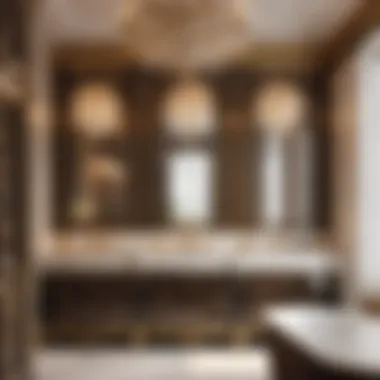
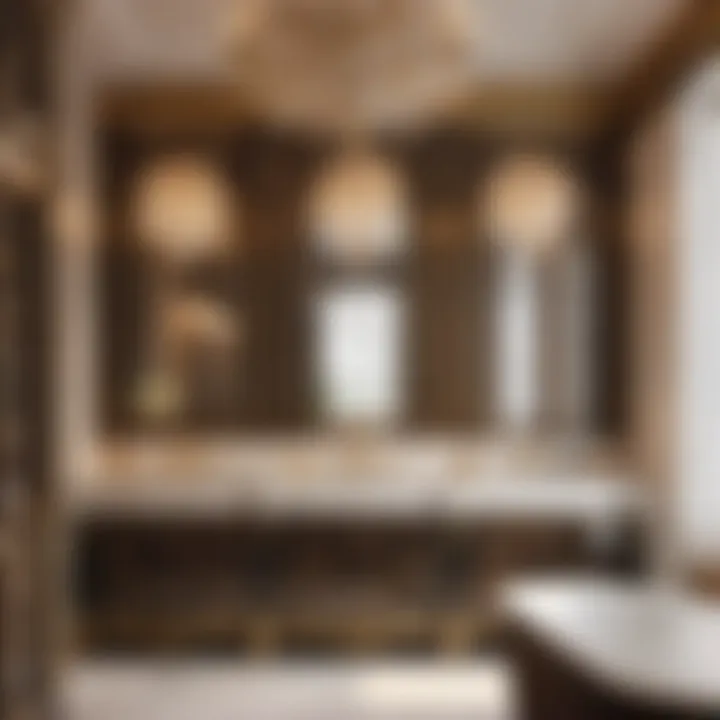
Defining Cabinet and Bathroom Factory Shops entails unraveling the essence of craftsmanship and customization in the context of home fixtures. These establishments represent a fusion of traditional artisanal techniques with modern innovation, culminating in bespoke solutions tailored to individual preferences. Their key characteristic lies in the ability to deliver meticulously crafted cabinetry and bathroom fittings that harmonize with the unique style and functionality requirements of each homeowner. The allure of Cabinet and Bathroom Factory Shops stems from their capacity to infuse a sense of artistry and personalization into essential household elements, catering to discerning clients who prioritize the marriage of form and function.
Evolution of the Industry
The Evolution of the Cabinet and Bathroom Factory Shops industry mirrors the dynamic shifts in consumer preferences and technological advancements over time. From handcrafted masterpieces to cutting-edge precision aided by automation, these factories have adapted to meet the ever-changing demands of the modern homeowner. A key characteristic of this evolution is the seamless integration of technology and design, enabling quicker production cycles, enhanced product quality, and increased customization possibilities. While presenting unparalleled convenience and efficiency, this evolution also poses challenges such as balancing traditional craftsmanship with contemporary efficiency standards. Navigating these dualities is crucial for Cabinet and Bathroom Factory Shops to thrive in a competitive market landscape and cater to a diverse clientele seeking premium home fixtures.
Importance of Quality in Home Design
Impact on Aesthetics
Quality plays a pivotal role in shaping the aesthetics of a home, with Cabinet and Bathroom Factory Shops serving as the vanguard of elevated design standards. The impact on aesthetics is profound, with high-quality fixtures acting as focal points that elevate the visual appeal of living spaces. The key characteristic of this quality-driven approach is the seamless blend of design prowess and material excellence that translates into visually stunning cabinetry and bathroom elements. Leveraging premium materials and meticulous craftsmanship, these factories curate fixtures that exude elegance, sophistication, and seamless integration with the overall design scheme of a home.
Significance of Durability
Durability stands as a cornerstone of quality in home design, with Cabinet and Bathroom Factory Shops emphasizing longevity and resilience in their offerings. The significance of durability lies in ensuring that fixtures withstand the test of time, daily usage, and environmental factors, maintaining their functionality and visual allure for years to come. Key to this characteristic is the meticulous selection of materials, rigorous testing procedures, and adherence to industry standards for durability and performance. While prioritizing durability adds to the upfront cost of fixtures, the long-term benefits in terms of maintenance savings, longevity, and continued aesthetic appeal make it a worthwhile investment for homeowners looking to create enduring spaces rich in quality and style.
Exploring Cabinet Factory Shops
Craftsmanship and Customization
Artisanal Techniques
Artisanal techniques encapsulate a cornerstone of cabinet factory shops, emphasizing meticulous handcrafted elements that elevate the overall quality and visual appeal of cabinetry. These techniques showcase the dedication and artistry of skilled craftsmen, providing a sense of authenticity and unique character to each piece. The key characteristic of artisanal techniques lies in the attention to detail and precision that goes into every creation, ensuring unparalleled quality and longevity. While artisanal techniques may involve a longer production process compared to mechanized methods, the result is a bespoke masterpiece that exudes charm and individuality. The unique feature of artisanal techniques lies in the artisan's ability to tailor each component to a client's specific needs, whether it be intricate carvings, ornate finishes, or custom sizing.
Tailored Solutions
Tailored solutions stand at the forefront of cabinet factory shops, offering personalized options that cater to individual preferences and spatial requirements. The key characteristic of tailored solutions is the ability to customize every aspect of cabinetry, from materials and designs to dimensions and functionalities. This level of customization ensures that each piece aligns perfectly with the client's vision and practical needs, resulting in a harmonious blend of aesthetics and functionality. The unique feature of tailored solutions is the flexibility they provide, allowing clients to select from a diverse range of styles, colors, and finishes to create a personalized masterpiece. While tailored solutions may entail a higher cost compared to standardized options, the advantages lie in the tailored fit, unique design elements, and tailored user experience they offer.
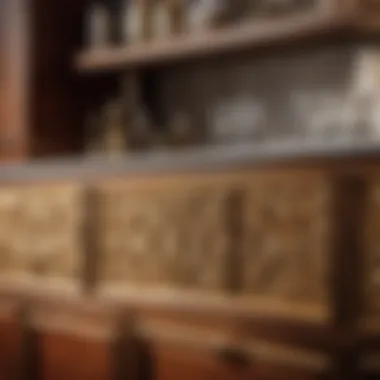
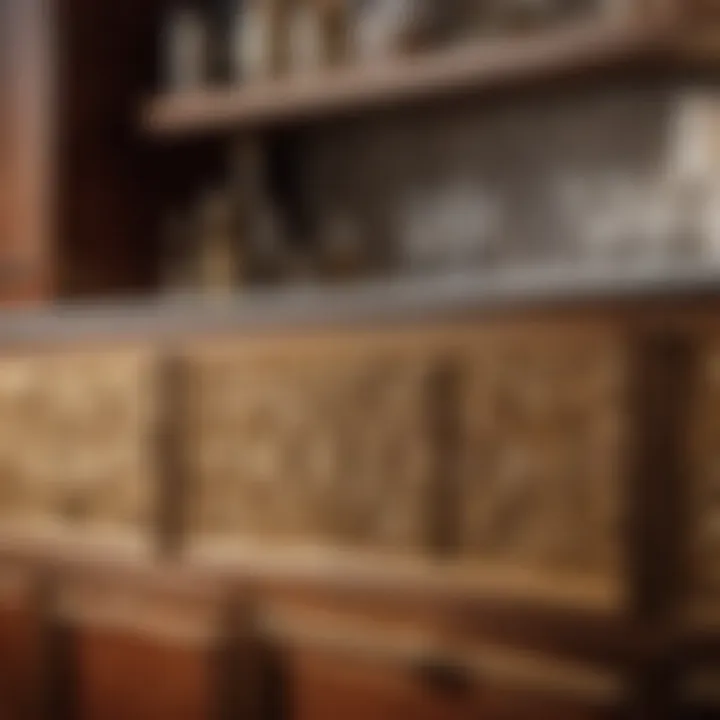
Technological Advancements
Automation in Production
Automation in production signifies a significant advancement in the efficiency and precision of manufacturing processes within cabinet factory shops. This automation streamlines production workflows, reducing manual labor and minimizing errors while enhancing overall productivity. The key characteristic of automation lies in its ability to standardize processes, ensuring consistency in quality and speed of production. This automation is a popular choice for the industry due to its ability to increase output capacity and meet the growing demand for customized cabinetry. The unique feature of automation in production is the integration of advanced machinery and software that oversee various stages of production, optimizing efficiency and accuracy.
Innovative Materials
Innovative materials represent a paradigm shift in the design and durability of cabinetry, offering a diverse range of options that cater to different design preferences and sustainability goals. The key characteristic of innovative materials lies in their eco-friendly nature, with many options utilizing recycled and renewable resources to reduce environmental impact. These materials not only enhance the aesthetic appeal of cabinetry but also contribute to a more sustainable approach to home design. The unique feature of innovative materials is their ability to mimic natural finishes such as wood grain or stone textures while providing enhanced durability and resistance to wear and tear. Despite the initial cost investment, the advantages of innovative materials include longevity, ease of maintenance, and a reduced carbon footprint.
Unveiling Bathroom Factory Shops
Bathroom factory shops play a crucial role in the realm of home design, offering a myriad of possibilities for creating stunning and functional spaces. In this article, the focus shifts to exploring the nuances and offerings of bathroom factory shops, shedding light on their significance in the industry. These establishments are key players in providing a wide array of high-quality bathroom products and design solutions that cater to various tastes and preferences, making them an indispensable resource for homeowners looking to upgrade their bathrooms.
Design Trends in Baths
Minimalistic Approaches
Delving into the world of design trends in baths, minimalistic approaches stand out as a popular and contemporary choice for modern bathroom aesthetics. The essence of minimalistic approaches lies in simplicity, clean lines, and a focus on functionality. By embracing minimalism, homeowners can achieve a sleek and uncluttered look in their bathrooms, creating a calming and organized space. The minimalist design philosophy emphasizes the use of fewer decorative elements and a subdued color palette, promoting a sense of serenity and sophistication. While minimalistic approaches offer a visually appealing ambiance, they may require careful planning to ensure functionality and storage solutions are adequately addressed within the design.
Luxurious Features
On the other end of the spectrum, luxurious features bring a touch of opulence and extravagance to bathroom spaces. Incorporating luxurious features such as spa-like bathtubs, rainfall showerheads, and premium materials can elevate the bathroom from a purely functional space to a luxurious retreat. Luxurious features not only enhance the visual appeal of the bathroom but also contribute to a spa-like atmosphere that promotes relaxation and indulgence. The allure of luxurious features lies in their ability to transform everyday routines into luxurious experiences, offering homeowners a sanctuary within their own homes. However, the integration of luxurious features may require careful consideration of space constraints and budgetary considerations to ensure a harmonious and practical design solution.
Sustainability and Eco-Friendly Practices
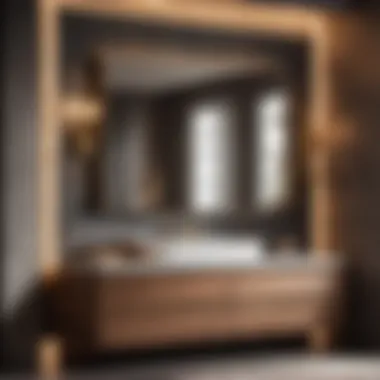
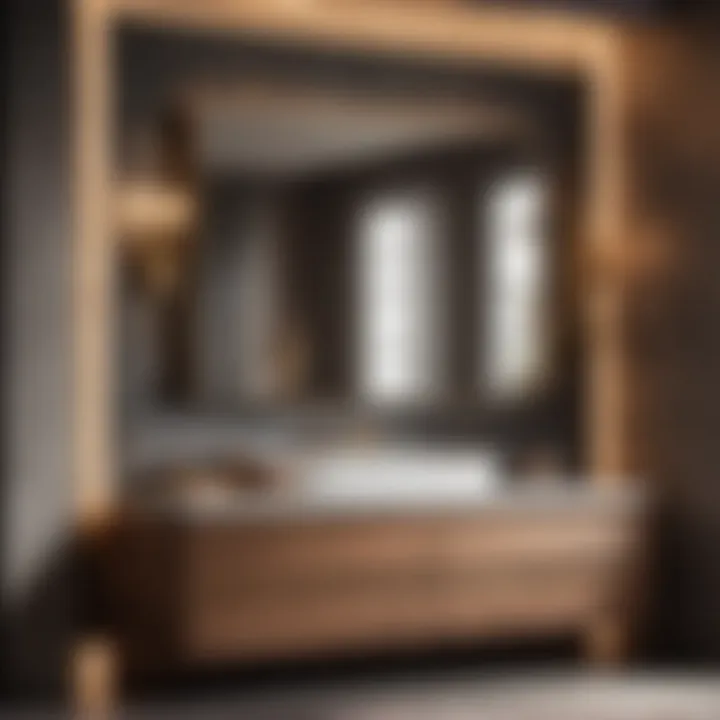
Recycled Materials
The adoption of recycled materials in bathroom design reflects a growing commitment to sustainability and environmental consciousness. Utilizing recycled materials in bathroom construction and decor helps reduce waste, conserve natural resources, and minimize the carbon footprint of the project. Recycled materials can encompass a wide range of options, including reclaimed wood, recycled glass countertops, and eco-friendly tiles made from recycled materials. By incorporating recycled materials into bathroom design, homeowners can not only contribute to environmental conservation but also add a unique and characterful touch to their spaces.
Energy-Efficient Solutions
Energy-efficient solutions play a pivotal role in creating environmentally sustainable bathrooms that prioritize energy conservation and reduced utility costs. From low-flow fixtures and LED lighting to smart water management systems, energy-efficient solutions offer practical ways to minimize energy consumption and promote sustainable living practices. By integrating energy-efficient solutions into bathroom design, homeowners can lower their carbon footprint and contribute to a greener future while enjoying cost savings and improved energy efficiency. However, selecting the right energy-efficient solutions requires a balance between functionality, aesthetics, and environmental impact to ensure a successful and sustainable bathroom design.
Customer Experience and Satisfaction
When delving into the realm of cabinet and bathroom factory shops, it becomes apparent that customer experience and satisfaction play pivotal roles in ensuring a successful venture. The foundation of any business lies in its ability to cater to the needs and expectations of its clients, and the world of cabinet and bathroom factory shops is no exception. Understanding the specific elements that contribute to an exceptional customer experience is crucial for establishing long-lasting relationships and fostering loyalty.
Providing personalized consultations is a key aspect of enhancing customer satisfaction within this industry. By tailoring recommendations to meet the unique requirements of each client, factory shops can create a bespoke experience that resonates with customers on a personal level. Whether it involves suggesting customized designs, materials, or layouts, offering tailored recommendations demonstrates a commitment to understanding and fulfilling the individual needs of every client.
The significance of design assistance cannot be overstated when it comes to ensuring customer satisfaction. By providing expert guidance on style, functionality, and practicality, factory shops can assist clients in making informed decisions that align with their vision for their living space. Design assistance not only streamlines the decision-making process but also adds a layer of expertise and professionalism to the overall customer experience.
After-sales support is another critical component of ensuring customer satisfaction in the cabinet and bathroom factory shop industry. Offering maintenance tips allows clients to care for their newly purchased products effectively, extending the longevity and quality of their investments. Moreover, providing warranty benefits instills confidence in customers, assuring them that their purchases are protected against unforeseen issues, further enhancing overall satisfaction.
Future Prospects and Innovations
As we delve into the realm of cabinet and bathroom factory shops, it becomes evident that staying abreast of future prospects and innovations is paramount. This section sheds light on the imminent developments shaping the industry's landscape, offering valuable insights for both suppliers and consumers. By exploring the potential advancements in technology and sustainability, we can better understand the trajectory of these essential home fixtures.
Integration of Smart Technology
Smart technology integration revolutionizes the way we interact with our living spaces. In the context of cabinet and bathroom factory shops, the advent of IoT in Home Fixtures is a game-changer. Imagine the convenience of controlling your home cabinets and bathroom fixtures remotely through connected devices. This characteristic epitomizes efficiency and convenience, enhancing the overall user experience. While the IoT in Home Fixtures may pose certain challenges regarding privacy and security, its benefits outweigh the risks. The ability to monitor and optimize cabinet and bathroom functionalities in real-time elevates practicality to a new level.
On the other hand, Data-Driven Designs introduce a dynamic dimension to product development. By leveraging data analytics, manufacturers can tailor cabinet and bathroom solutions to individual preferences and trends. The key advantage lies in the personalized approach, ensuring that every fixture resonates with the customer's unique style and requirements. While data-driven designs enhance customization and efficiency, there may be concerns regarding data privacy and ethical implications. Nonetheless, the ability to create bespoke fixtures based on empirical evidence fosters innovation and customer satisfaction.
Sustainable Practices in Production
Embracing sustainable practices in production is not just a trend but a necessity in the contemporary manufacturing landscape. Green Initiatives play a pivotal role in reducing the environmental footprint of cabinet and bathroom factory shops. Whether through sourcing eco-friendly materials or implementing energy-efficient processes, green initiatives uphold ethical standards while preserving natural resources. The distinctive feature of Green Initiatives lies in their contribution to eco-conscious consumer choices and industry sustainability.
Additionally, Circular Economy Models redefine the traditional linear production approach by promoting resource efficiency and waste reduction. By emphasizing product reuse, recycling, and regeneration, Circular Economy Models foster a circular flow of materials within the industry. This creates a closed-loop system where waste is minimized, and resources are maximized, leading to a more sustainable manufacturing paradigm. While Circular Economy Models require a shift in production paradigms, their benefits in minimizing waste accumulation and promoting resource circulation are undeniable.







